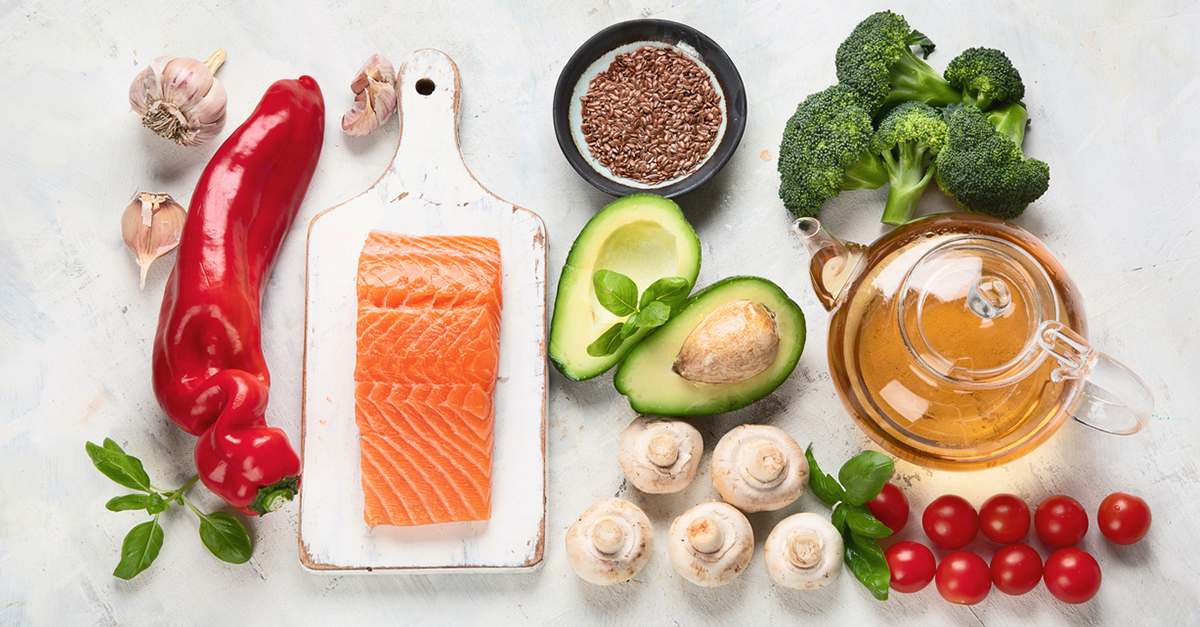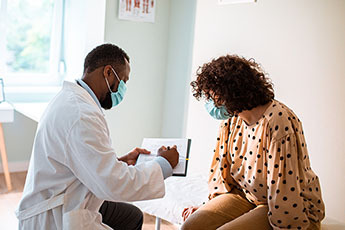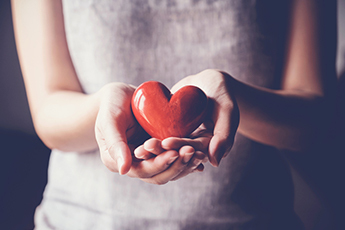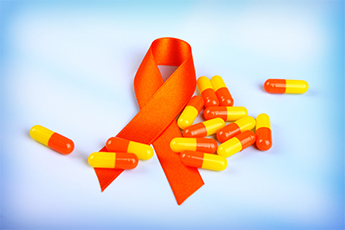6 best food choices for people with kidney cancer

Your kidneys have a tough job. These two organs behind your abdomen filter waste products and water from the blood. Then your body releases the waste urine. Your kidneys also help your body maintain a healthy acidity (pH) balance while metabolizing sodium, water, and vitamin D.
Because your kidneys help process pretty much everything you put into your body, what you eat and drink can impact how you feel each day and your overall health if you have kidney cancer.
How kidney cancer affects kidney health
Close to 74,000 Americans will receive a kidney cancer diagnosis this year. It’s one of the 10 most common cancers, affecting 1 in 46 men and 1 in 82 women. The top treatment for kidney cancer involves surgically removing the diseased kidney (called a radical nephrectomy) or taking out the cancerous part (partial nephrectomy).
These procedures, as well as radiation therapy, thermal (radiofrequency) ablation, and other treatments, can affect kidney function. Your body functions fine with only one kidney — or a kidney treated for cancer. Nonetheless, it’s important to protect the health of these organs as much as possible.
What is a kidney-friendly diet?
There’s no such thing as a kidney cancer-specific diet. Still, some of the same healthy eating advice that applies to people with chronic kidney disease or diabetes may also help people with renal cell carcinoma, or RCC (the most common type of kidney cancer), and other kidney cancers.
A healthier diet may also help you lose weight (if your doctor has recommended you do so). Obesity is a known risk factor for kidney cancer. Excess weight can contribute to high blood pressure, another known kidney cancer risk factor. Even after a kidney cancer diagnosis, losing weight through healthy eating can improve your overall health and decrease your chances of kidney cancer metastasis (spread) or recurrence.
From the community: “I'm checking in to let you know that it is totally fine to go on with one kidney. I was 39 when I had a similar diagnosis. I had the whole left kidney removed. The incisions are minimal and the scars all gone at this point (4 years later). I have lived a healthy life since then without any kidney complications and no reoccurrence of the cancer. Your body is made to live with only one without issue… It was a good opportunity to improve my eating habits, improve my overall health.You'll want to limit the dense proteins from red meat, limit potassium and increase fiber. Running/cardio will help you with heart health which will become quite important. Google food ideas for healthy kidney and there is a ton of info… Its a positive sign that the cancer is contained and you have a great chance to never worry about this again. I'll keep you in my thoughts. Think positive, trust your doctors, keep reaching out to your support system and get ready to get back to life with a renewed sense of purpose.” – Inspire member
What foods and drinks should you have (or avoid) if you have kidney cancer?
A balanced diet is good for everyone, but especially for people who have kidney cancer. Some foods are high in minerals or vitamins that affect kidney function. When your kidneys aren’t functioning as well as they should, waste and fluids can build up, increasing your risk for other problems like heart disease.
You shouldn’t need to cut out entire food groups completely. Smart swaps can keep kidneys functioning as optimally as possible. Your doctor or a dietitian can help you make the best food choices for your health.
Here are 6 kidney-friendly foods and drinks to put on your grocery shopping list.
Skinless chicken and other low-protein foods. Protein helps your body build muscle and fight infection. But too many high-protein foods (red meat, fish, dairy products) can strain kidneys already struggling to remove waste byproducts from the blood. Some protein sources that are easier for your body to metabolize are egg whites, skinless chicken, shiitake mushrooms, and tofu. Your healthcare provider or a dietitian can determine the right amount of protein for your unique needs. This number varies depending on your body size, as well as your kidney problem and function.
Fish, meats, and dairy products low in phosphorous. Diseased kidneys have a harder time filtering phosphorous, a mineral found in egg yolks, fish (sardines and pollock), chicken and turkey, milk products, and certain grains like whole wheat and oats. Choose low-phosphorus foods, such as mahi-mahi, salmon, beef, skinless chicken and turkey, and almond milk.
Low-potassium carbohydrates and greens. Potassium acts as an electrolyte, helping to move waste products out of cells. The mineral also regulates blood pressure and balances the amount of fluids in your body. When your kidneys don’t work properly, potassium can build up in the blood and circulate to your heart, causing heart problems. Try swapping out high-potassium foods like bananas for pineapple or berries instead. Use roasted or mashed cauliflower or turnips as substitutes for potatoes, and try making salads with arugula in place of spinach or kale.
Herbs, lemons, and no-sodium foods. Most Americans consume too much sodium (salt) in their diets. Too much salt isn’t good for anyone, but it’s especially problematic if you have kidney cancer or are missing a kidney. Sodium raises blood pressure and makes kidneys work harder. Look for no-sodium products and try seasoning your food with herbs or fresh lemon juice. Read the labels of low-sodium products and salt substitutes carefully. Many of these products are high in kidney-damaging potassium.
Fresh fruits, especially berries. Blueberries, strawberries, raspberries, cranberries, and blackberries are high in antioxidants. These compounds show promise in protecting cells from free radicals that cause cancer. Grapes, peaches, apples, and tomatoes are high in flavonoids, which help your body get rid of toxins and minimize inflammation.
Water and other beverages. This category is a tricky one. You need water to survive, and the liquid helps kidneys remove waste through urine. But sometimes, a diseased kidney can’t move fluids out of the body fast enough. While it’s important to stay hydrated, drinking too much water or other beverages can lead to edema (swelling) and high blood pressure. Excess fluid can build up around your lungs, making it hard to breathe. If your doctor recommends limiting your fluid intake, you can chew sugar-free gum or suck on sugar-free hard candies to satisfy thirst.
From the community: “Just to let you know I am 80 now and they removed my right kidney. I am doing just fine. I did have Bladder cancer after my Kidney removal, but after 2 Turbs and BCG treatments 2 times I have been NED. I am a Stage 3 Kidney with my one kidney, but with plenty of water, my protein intake and sodium intake my left kidney does it job.” – Inspire member
Sources
Key Statistics About Kidney Cancer. American Cancer Society. February 2020.
Risk Factors for Kidney Cancer. American Cancer Society. February 2020.
Kidney-Friendly Diet for CKD. American Kidney Fund. June 2020.
Daily Life With Kidney Cancer. Cancer Research UK. June 2020.
Top Low-Phosphorous Food Choices for a Kidney Diet. DaVita® Kidney Care.
Life With Kidney Cancer. Kidney Cancer Association.
Nutrition and Early Kidney Disease (Stages 1-4). National Kidney Foundation. April 2020.
Renal Diet. NephCure® Kidney International.
Eating for Kidney Health: 5 Tips for Kidney Cancer Awareness Month. The Urology Group. March 2020.
Diet, Nutrition, Physical Activity, and Kidney Cancer. World Cancer Research Fund International. 2015.
Disclaimer
Member comments are lightly edited for length and to remove identifying information but are otherwise reproduced as they appear in the community as part of public posts.
This content is for general informational purposes only and does not necessarily reflect the views and opinions of any organization or individual. The content should not be used as a substitute for professional medical advice, diagnosis, or treatment. Please consult your healthcare provider about any questions you may have regarding a medical condition.




